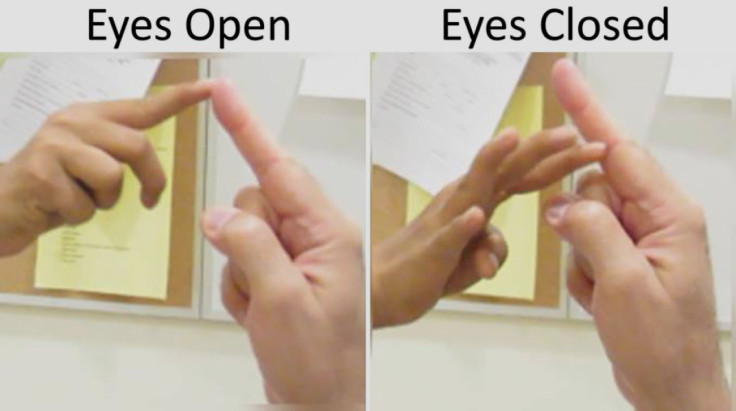'Sixth sense' may not be just a feeling but a process controlled by our genes
The way we perceive ourselves in space - a sort of 'sixth sense' - appears driven by a specific gene.

Do we have a "sixth sense" determined by our genes? Scientists seem to think so, as they have identified a gene that controls proprioception – an intuitive awareness of our body in space, which is not explicable in terms of normal perception.
This discovery is based on innovative research with two young patients suffering from a rare neurological disorder characterised by difficulties in walking, deformities in their hips, fingers and feet as well as abnormally-curved spines (scoliosis).
A range of experiments revealed that they are also touch-blind and lack body awareness in space. Blindfolding them, for example, made walking very difficult, causing them to stumble.
This suggests that the molecular and neural mechanisms underlying these sensory functions are dysfunctional but scientists struggled to understand why, although the role of ion channel Piezo2, had previously been highlighted in the development of other musculoskeletal disorders.
Mutation affecting touch and awareness
The research, published in the New England Journal of Medicine , investigates whether genetic mutations could be to blame for the patients' lacking a consciousness of their body in space – a sort of "sixth sense".
The scientists, led by Carsten G Bönnemann from the US National Institute of Neurological Disorders and Stroke, identified in the two patients a mutation in a gene called PIEZO2. It appeared to block the normal production of the Piezo2 proteins in the cells. This may be the cause of the two patients having movement and balance problems, as well as a loss of some forms of touch. The scientists thus believe that the PIEZO2 gene is associated with touch and proprioception and that when it is mutated people lose their "sixth sense".

Furthermore, the patients' scoliosis and joint problems suggest that the Piezo2 proteins are required for the normal growth and alignment of the skeletal system.
"Our study highlights the critical importance of PIEZO2 and the senses it controls in our daily lives," concludes Bönnemann. "The results establish that PIEZO2 is a touch and proprioception gene in humans. Understanding its role in these senses may provide clues to a variety of neurological disorders."
© Copyright IBTimes 2025. All rights reserved.






















